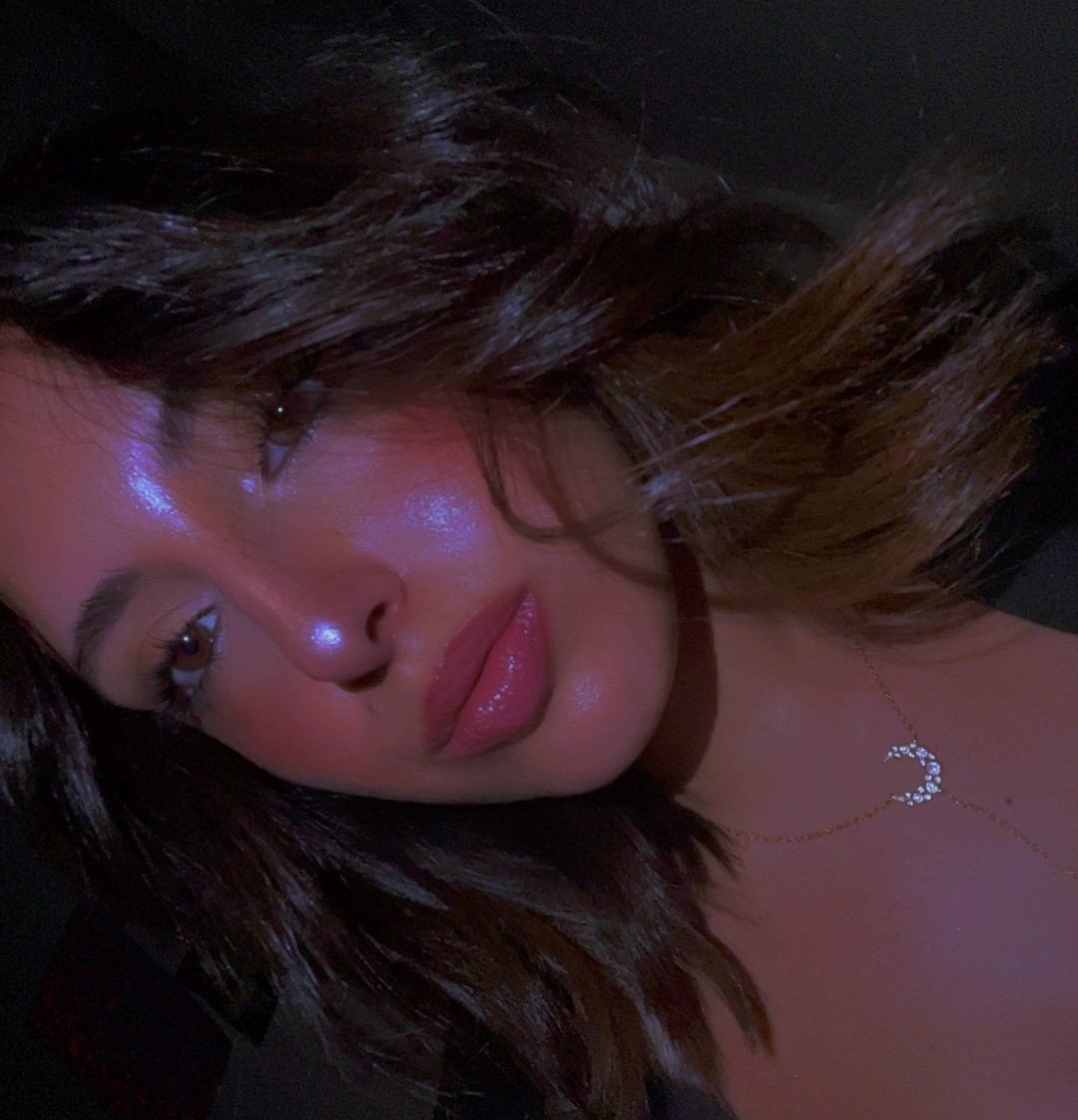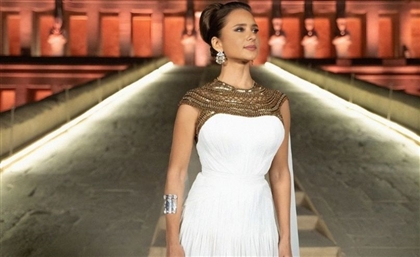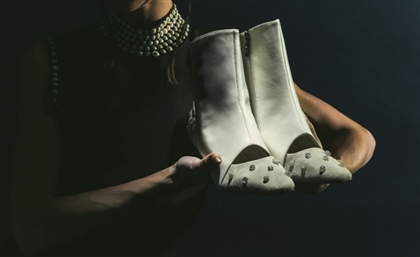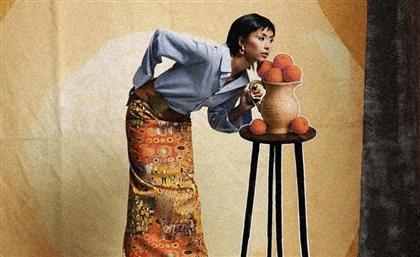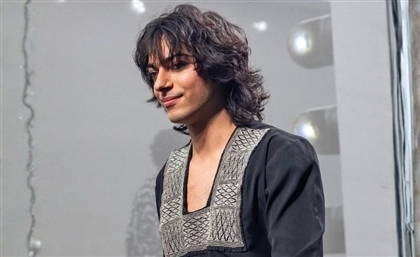Morocco’s Zineb Koutten Turns Life Into Fashion’s Most Honest Lens
Koutten finds stories where others don’t look; in the strength of hijabi women, the resilience of market vendors, and the nooks of a forgotten alleyway.
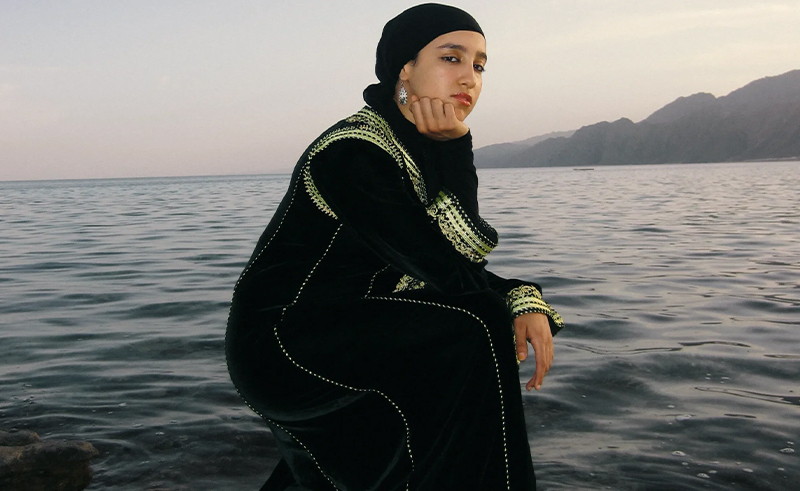
Originally Published on April 13, 2025
Zineb Koutten doesn’t shoot glossy, overproduced images. The Moroccan photographer’s work feels like the kind of dream you don’t want to wake up from; rooted in reality, but softened by the poetry of her gaze. She’s worked with the likes of Faherty Brand, The Fame Collective, and Jana Diab. In January 2024, she debuted her first solo exhibition, Paris Through Their Lens, at the American Arts Center in Casablanca. She photographs women in wedding dresses leaning against fruit stalls, boys hanging on street corners, women in hijab standing like icons in the middle of everyday life. Through her lens, the ordinary becomes extraordinary, without losing its grit.
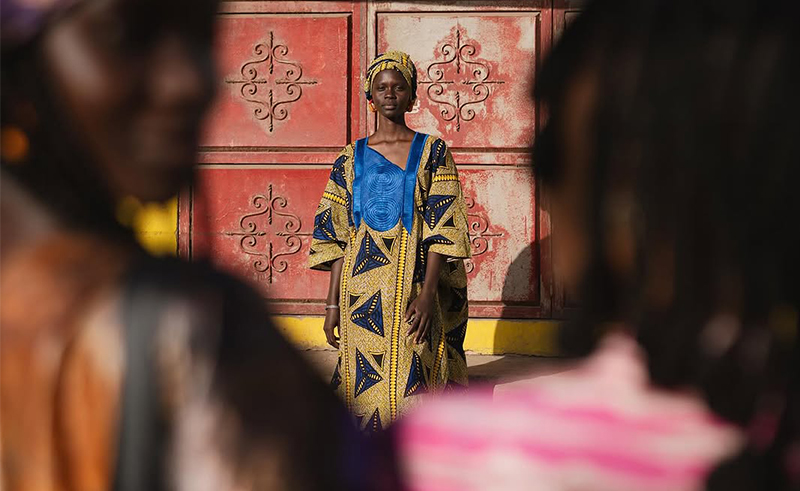
Yet long before the work makes its mark, Koutten herself makes a silent statement simply by navigating the world of fashion photography as a veiled Moroccan woman. “People get surprised when they meet me,” Koutten tells #SceneStyled. “They see a hijabi woman who travels, works, and lives freely.” She’s used to the double takes, but instead of shrinking, she leans in. And if that disrupts a few assumptions and misconceptions? Even better. “Like, yes — you can be Muslim and do all that. It’s about feeling free and close to God all at once, and when you reach that, nothing feels better.”
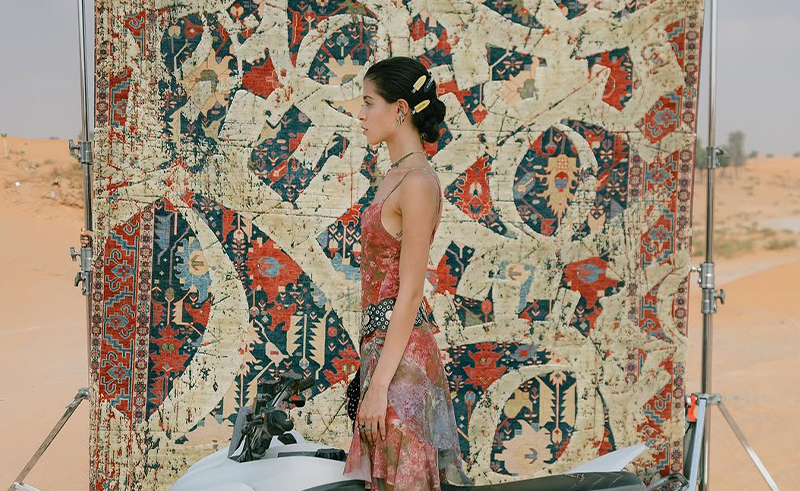
Her pride in her Moroccan identity runs through every project she does. Nowhere is that more clear than in WLAD CHA3B, her ongoing series celebrating Morocco’s working class. “These are my people, my friends, my roots,” she says. “The working class are the backbone of society. They create culture, but they’re rarely celebrated. I want to change that.” In her photographs, she captures their strength and dignity, men and women standing tall in their daily uniforms, full of pride and resilience.
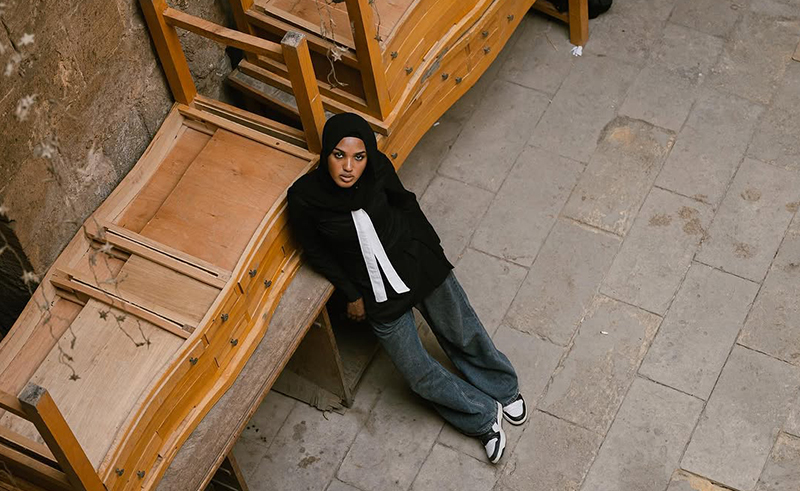
As a kid growing up in Casablanca, Koutten was always looking for ways to express herself; painting, acting, writing, singing. Anything that would let her build her own world. “Art was always my outlet,” she says.
In 2016, that urge to create found its first real audience when she launched a YouTube channel, letting strangers into her life. First, it was just a place to share her lived experiences, but somewhere between the posts and the vlogs, she found her voice; the same voice that now speaks through every photograph. “Being on Youtube showed me how to tell stories, how to speak to people — and how to express myself,” she reflects. “Even now, when I do interviews, I’m less nervous because of all those years speaking to a camera.”
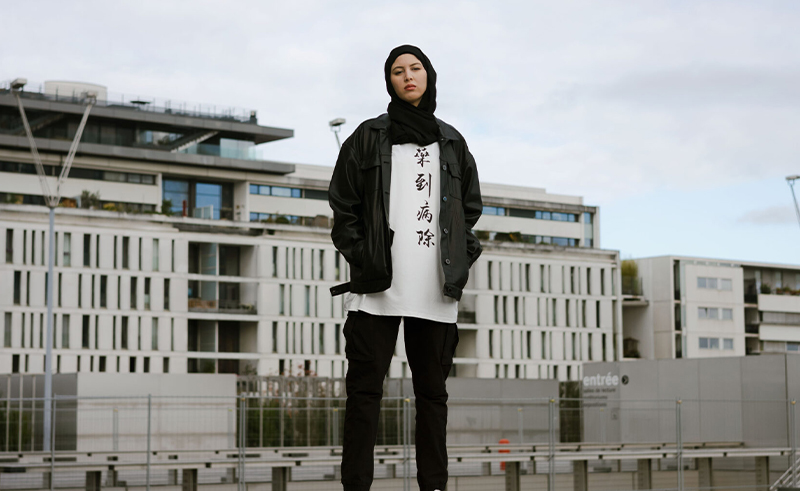
Before stepping fully into photography, Koutten relied on modeling gigs to support herself — but even that came with its own set of walls. “People would hire me when they wanted to tick the ‘diversity’ box,” she reflects. While she’s grateful for those opportunities, she couldn’t help but notice the unspoken limits placed on her — limits her non-hijabi peers didn’t have to navigate.
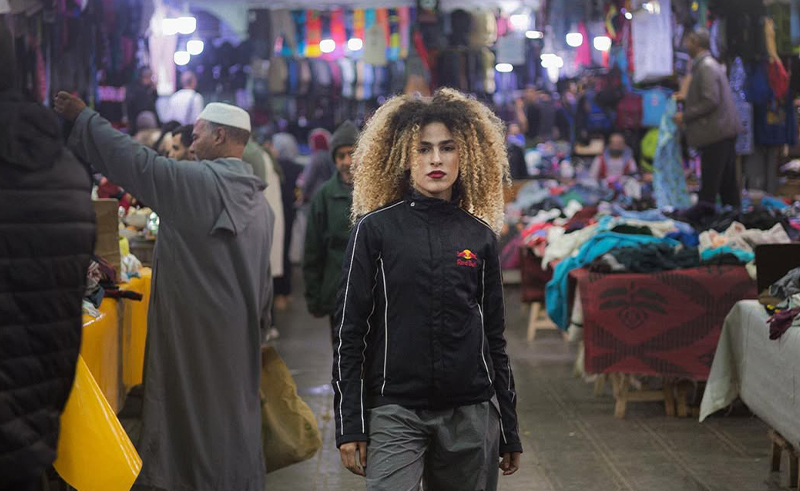
Fashion photography entered her life by accident, by way of her friends who were already part of the industry. She started by taking photos of them in the streets of Casablanca, helping them with their content. “That’s when I realised I actually love this,” Koutten shares. “Slowly, I saved up for a real camera— but even then, I could only afford a photo lens, so photography became my first real medium.”
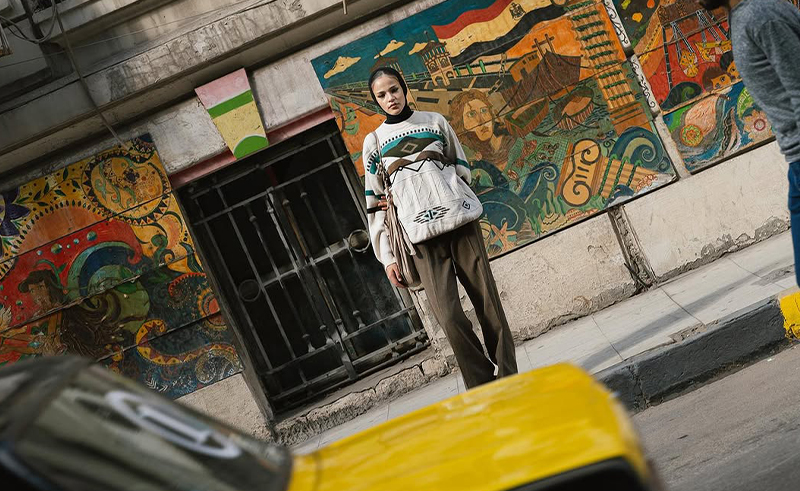
Today, her style is unmistakable— raw, intimate, full of texture, featuring sun-bleached walls, city corners, people caught mid-thought. Fashion in her world doesn’t look like it’s been airlifted from another planet; it belongs to the street, to life. “I was always asking people what I could do better. Not all advice made sense, but the ones that did? I took them.”
Her project Paris Through Their Lens shines a light on the lives of hijab-wearing women in France— women whose everyday reality is shaped by racism and prejudice. “When I was going to France for the first time, as a hijabi woman myself, I didn’t know what to expect. I wanted to explore that fear artistically and tell the stories of women like me — what their everyday lives look like in France, so I photographed 20 women across Paris. After hearing their stories, all I could think was, ‘What strong women they are."
She treats every shoot like a conversation; starting with getting to know her subject, listening to their story, and letting that guide the creative process. Instead of pre-planned poses and locations, she often wanders with her subjects, waiting for moments that feel right. “A lot of people think that’s unprofessional,” she shares, “but for me, it’s how I create my best work — when there’s trust, freedom, and flow.”
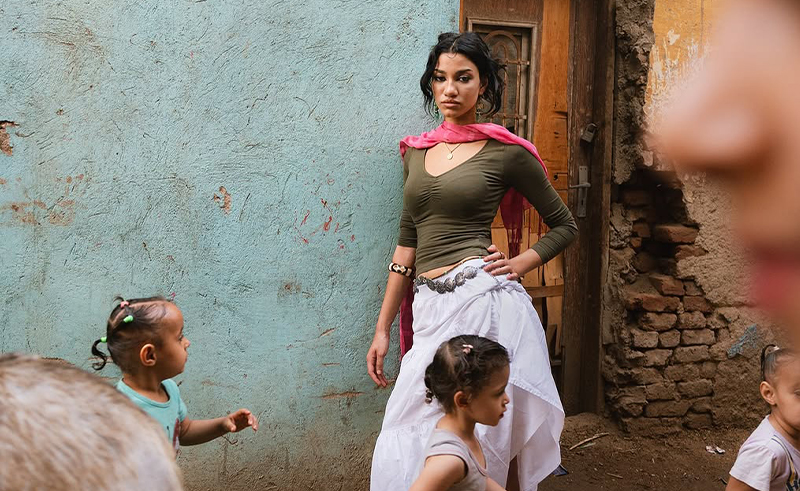
More recently, she’s ventured into filmmaking, co-directing the evocative documentary Girl Skaters of Casablanca alongside Egyptian artist Hussein Mardini, bringing forward the overlooked stories of young female skateboarders in Morocco. “It was emotional because I skate, too,” she says. “It was the first time I felt like I was really doing something meaningful for the community.”
Another documentary took her high into the Atlas Mountains, where she lived among an Amazigh family, not merely observing their lives but becoming a part of them. That intimacy seeps into her work, giving her images a rare kind of warmth and truth that you can feel.
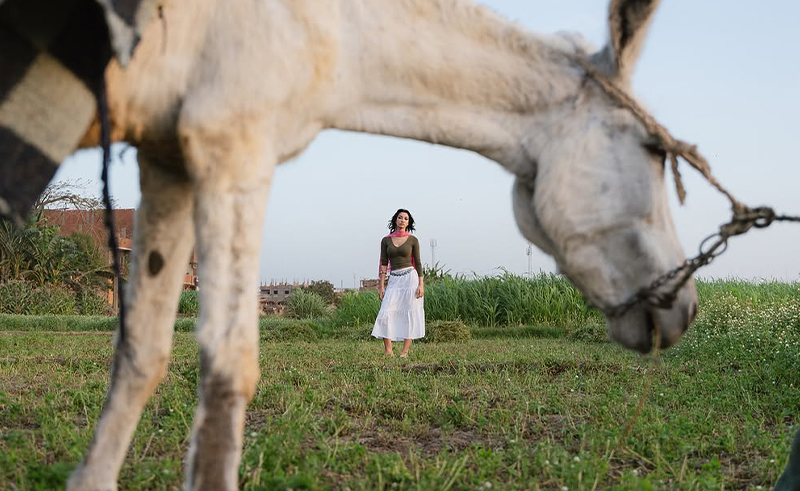
Through all her work, Koutten keeps coming back to one thing: honesty. She’s not interested in perfection, but in real stories. “I hope my work makes people rethink what a Muslim woman looks like, what Moroccan life looks like, what fashion can look like when it’s honest,” she says.
- Previous Article Styled Archives: MENA Celebs Who Nailed the Office Siren Look
- Next Article How to Style Kayali Fragrances The Scene Styled Way
Trending This Month
-
Nov 08, 2025

